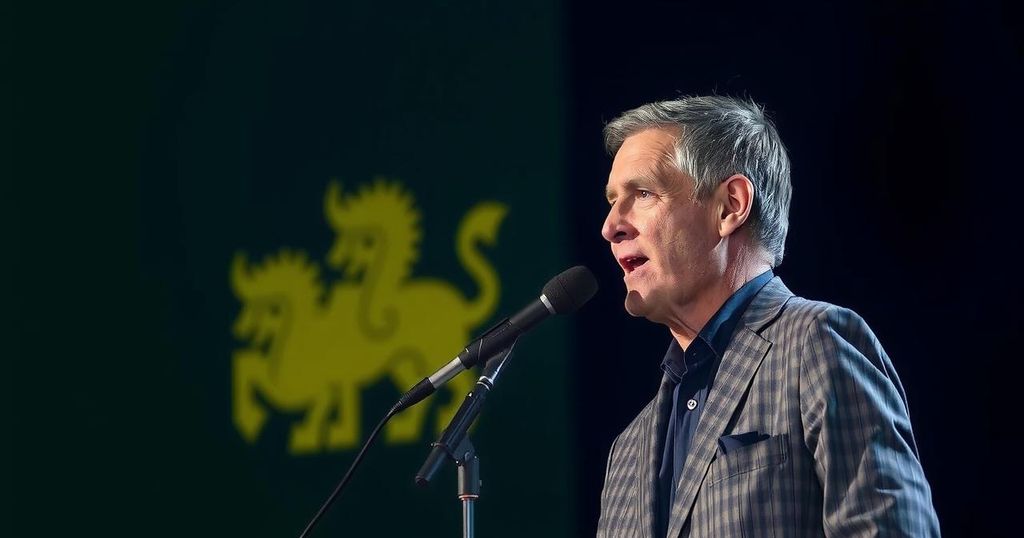Politics
AN, ANURA KUMARA DISSANAYAKE, ASIA, COLOMBO, DEMOCRACY, DI, DISSANAYAKE, ERIK SOLHEIM, EUROPE, GOVERNANCE, GOVERNMENT, JAFFNA, LEADERSHIP, LIBERATION TIGERS OF TAMIL EELAM, LTTE, NORWAY, NPP, OPPOSITION, SOCIALIST LEFT PARTY, SOLHEIM, SRI LANKA, THE FEDERAL, VE, VELUPILLAI PRABHAKARAN
Marcus Li
0 Comments
NPP’s Elections Victory: A Transformative Moment in Sri Lankan Politics
Erik Solheim described the NPP’s electoral victory as an ‘earthquake in Sri Lankan politics,’ highlighting unexpected support from Tamils signaling a shift towards ethnic reconciliation. He emphasized the need for the new government to address corruption and prioritize inclusive economic policies, while also encouraging actions that uphold equal rights for all ethnic groups.
In a recent interview, Erik Solheim, the former Norwegian diplomat and peace facilitator, characterized the National People’s Power (NPP) electoral triumph in the November 14 elections as an “earthquake in Sri Lankan politics.” Solheim noted that the NPP, led by President Anura Kumara Dissanayake, achieved unprecedented success, especially in Tamil-populated regions, signaling a significant shift in ethnic relations within the country. He expressed concern, however, regarding the broader challenge of eradicating corruption, despite perceiving the NPP’s leadership as having a solid moral foundation.
Solheim highlighted the discontent among voters, particularly the less privileged, who have long felt neglected by the traditional elite amid Sri Lanka’s economic downfall. He underscored the failure of previous leadership to foster sustainable economic growth and social equity, positing that the NPP’s success reflects a desire for an inclusive political climate. This unexpected support from Tamil voters, in particular, signals a potential rejection of previous ethnic nationalist politics and a call for reconciliation.
The NPP’s overwhelming victory, with 159 seats in the parliament, showcases a shift towards a governance structure that can resonate with various demographic segments in Sri Lanka, away from the historically dominant Sinhalese political frameworks. Solheim asserted that the new government must focus on establishing robust economic policies, notably in negotiations with the International Monetary Fund, to improve conditions for the impoverished populace.
Adding to the conversation, Solheim urged the NPP to build upon its electoral success by prioritizing economic inclusivity and addressing the demands for equal rights from all ethnic communities. He articulated the hope that by embracing broader and more inclusive economic policies, the NPP can potentially secure its role as a transformative political entity for the foreseeable future, steering Sri Lankan society towards long-term progress and stability.
The National People’s Power (NPP), a political party in Sri Lanka, recently achieved significant electoral success, marking a notable shift in the political landscape of the nation. Led by Anura Kumara Dissanayake, the party attracted support across ethnic lines, particularly among Tamil voters, reflecting a desire for new approaches to governance and ethnic relations. Former diplomat Erik Solheim’s insights illuminate the broader implications of this electoral outcome, particularly in terms of governance and the socio-economic challenges facing the country.
Erik Solheim’s reflections on the NPP’s significant electoral victory reveal a transformative moment in Sri Lankan politics, characterized by a shift away from traditional power structures. The unexpected support from Tamil voters signals a demand for more inclusive governance and a rejection of ethnic nationalistic policies. Solheim’s call for economic and ethnic inclusivity underscores the urgency for the new government to address issues of corruption and to develop policies that cater to the needs of all citizens, thereby fostering a more equitable Sri Lanka.
Original Source: thefederal.com




Post Comment